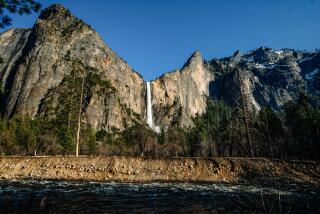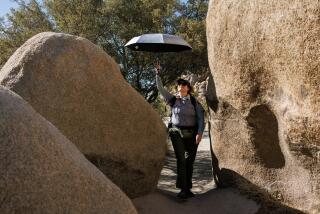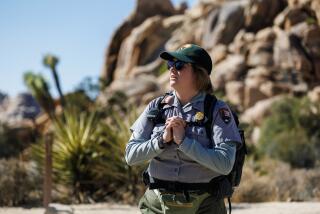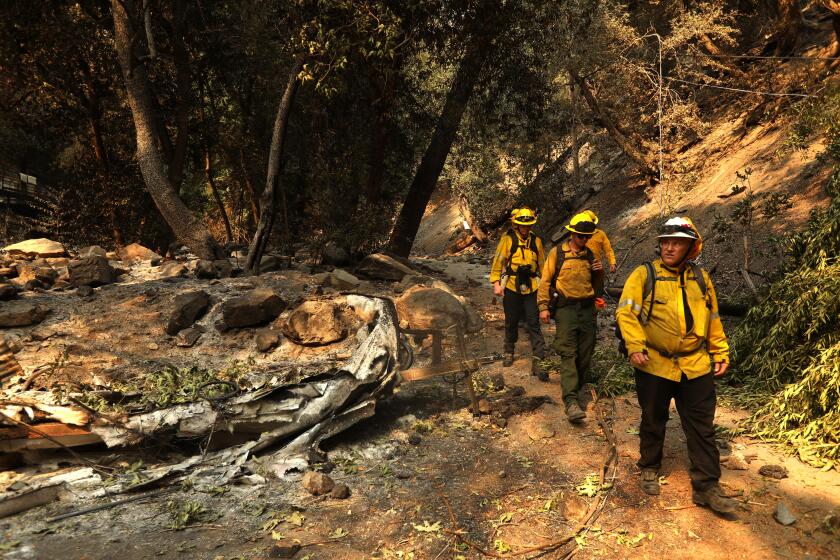What made this father/daughter hike in Yosemite work? Respect, reliance on each other and appreciating what it means to be young
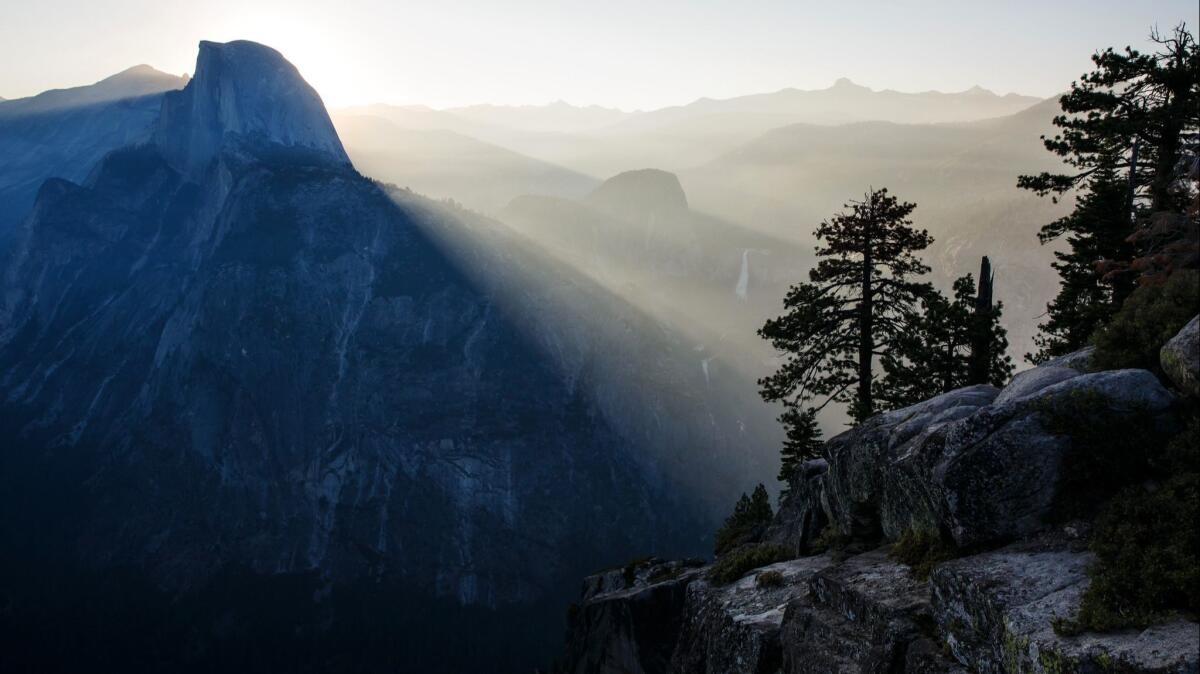
“I don’t want to go backpacking with Daddy. He’s too slow. I always have to wait for him!”
Alanna, 19, was explaining to my wife why she intended to venture into Yosemite’s back country with a friend rather than me.
But a few days later her friend canceled.
“I’ll go with you,” I said.
She looked at me sideways. “You will?”
“Sure. You figure out where we’re going, get the permits, and I’ll go with you.”
She soon learned that all the advance wilderness permits were taken, so we had to try our luck at the park entrance and if we failed, figure out something. Not only did we get a permit for the Rafferty Creek trail over Vogelsang Pass to Yosemite Valley, we got permits to climb Half Dome.
For Alanna it was a dream come true. For me? I had some concerns.
On the drive to Tuolumne Meadows I explained that I didn’t know whether I’d be able to make it. “I haven’t carried a backpack in three years, and I don’t know how my feet will hold up,” I told Alanna. Hiking the previous summer, I got pains in my feet that I later learned were caused by a neuroma, a nerve problem that can cause intense pain in the foot and numbness in the toes.
“But Daddy, we have to do this,” she said. “We got a Half Dome permit. When will we ever get this chance again?”
When indeed?
Granite wonderland
The first night camping set the pattern for our trip. We slipped into roles without asking each other who was going to do what. We just did what needed doing.
On our hike, Alanna set a moderate pace. The Vogelsang High Sierra Camp became our point of no return. If we kept going now, we had to continue all the way. I knew how much it meant to her, and I too wanted to know whether I could still handle a 10-mile-a-day backpacking trip.
We forged on, up and over the pass, my feet beginning to ache, and down the other side into a wonderland of granite and pine until we reached Florence Creek, a torrent we had to cross. It was harrowing, but working together we made it and celebrated by camping nearby.
The next day Alanna hiked ahead, and sometimes I had to remind her to stay with me. My feet were forcing me to remove my boots every hour to let the pain subside, while she rested without complaint.
At one point when I found her waiting around a bend, I asked her to slow down. “There’s no need to go gangbusting down the trail,” I said.
“But Daddy,” she said, “I like gangbusting. What else would we do all day if we weren’t hiking?”
I smiled, because I remembered being like that. There was a time when hiking was the whole point.
A steep climb
The next morning, we stood at the cables at Half Dome’s last pitch, looking up at the impossibly steep climb.
“Are you scared?” I asked.
“Yeah, a little.”
I looked into her eyes. “It’s intimidating, but you can do it,” I said. “You’re strong. You’re agile. You’re mentally tough. You just have to trust your abilities. And if you start to panic, just remember to breathe and take your time.”
She nodded.
“Do you want me to go first?”
She did. Less than 30 minutes later we were at the top, looking out over the whole world.
Later that day, when we were hiking to the Mist Trail, which would lead us down to the valley floor, my foot pain manageable, she turned to me.
“You know, Daddy, this trip couldn’t have gone any better.”
I thought for a moment before I replied, trying to grasp what had transpired the past three days. We had taken a chance on getting permits. We had lucked into the privilege of climbing Half Dome. We had overcome her disappointment at having to hike with her father instead of her friend and my worries about carrying a heavy pack on failing feet. And we did all of it with mutual respect and reliance on each other.
I said the only thing that made sense.
“You’re right, Alanna. You’re absolutely right.”
Departure Points explores the ways in which traveling changes us, whether it’s a lesson learned or a truth uncovered. You may submit a first-person essay of 700 or fewer words to travel@latimes.com using “Departure Points” in the subject line. Please include your first and last names and your contact information for editorial consideration.
More to Read
Sign up for The Wild
We’ll help you find the best places to hike, bike and run, as well as the perfect silent spots for meditation and yoga.
You may occasionally receive promotional content from the Los Angeles Times.
